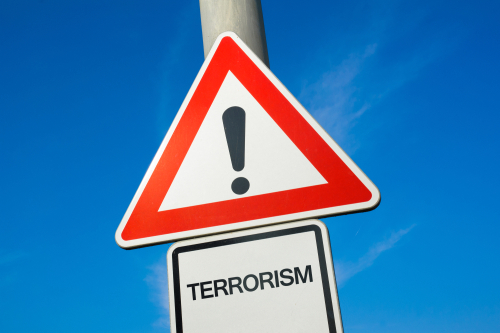Rubio says Washington will use every counterterrorism tool against cartel networks—including those tied to Maduro—ending years of treating them like “local street gangs.”
Rubio’s Pledge: Treat Cartels as Terrorists, Use All U.S. Power
Secretary of State Marco Rubio told EWTN on August 7 that the United States has designated several criminal organizations as terrorist entities and will “use all its power to eradicate them,” drawing a sharp contrast with prior approaches that framed such actors as mere “local street gangs.” He referenced groups linked to Venezuela’s Nicolás Maduro and cast the shift as a core pillar of the second Trump administration’s first six months strategy against transnational criminal organizations.
Rubio’s remarks sit atop a 2025 policy arc: a late-July State Department media interview previewed tougher use of terrorism authorities, and a July 18 action designated The Resistance Front as a terrorist group—evidence the administration is operationalizing this strategy. The sequence underscores that designations are not rhetorical; they are being issued, publicized by U.S. embassies, and paired with an interagency plan to pursue sanctions, immigration bars, and prosecutions tied to material support.
What These Designations Unlock: FTO and SDGT Tools
U.S. counterterrorism law provides two primary levers: Foreign Terrorist Organization status under the Immigration and Nationality Act, and Specially Designated Global Terrorist sanctions under Executive Order 13224. Together, they enable asset freezes, criminal penalties for material support, visa denials and removability, and powerful secondary sanctions that pressure facilitators. Secretaries of State have broad discretion to designate and delist; even if an FTO label changes, SDGT measures can persist, maintaining financial leverage and investigative reach.
This layered architecture is designed for durability. By pairing FTO listings with SDGT sanctions, Washington can choke financing, deter logistics providers, and isolate enablers in shipping, crypto, and remittance channels. Banks must enhance screening and offboard risky relationships, increasing compliance pressure on suspect networks. For conservative readers focused on border security and law-and-order, these are the teeth long demanded—tools that move beyond speeches to seizures, indictments, and visa blocks against cartel leaders and their fixers.
Maduro-Linked Networks: Strategic Pressure, Higher Stakes
Rubio’s explicit mention of groups tied to Maduro raises stakes across the hemisphere. The administration’s posture signals that Venezuela-linked actors alleged to facilitate trafficking, money laundering, or violence could face designations and secondary sanctions, complicating bilateral relations and regional politics. Partners may align measures, share intelligence, and amplify pressure. While this invites diplomatic friction with Caracas, it telegraphs a clear priority: disrupt cross-border criminal-terror ecosystems threatening U.S. communities and sovereignty.
Officials acknowledge verification gaps around the precise entity Rubio referenced in the EWTN exchange, highlighting the need for additional sourcing as follow-on designations are announced. Nonetheless, the July action against The Resistance Front demonstrates momentum, and State’s 2025 messaging frames cartels and allied networks as national security threats, not just criminal nuisances. For families enduring fentanyl overdoses and border chaos, the policy shift translates into tangible authorities to hit leadership, financiers, and logisticians where it hurts—the money.
Impacts to Expect: Enforcement, Courts, and Cooperation
Short term, expect asset freezes, travel and immigration bars, and material support cases against facilitators. Financial institutions will raise screening thresholds, while shippers, brokers, and tech intermediaries face stricter due diligence. Longer term, normalizing terrorism tools against transnational criminal organizations broadens the counterterrorism playbook. Legal challenges may test thresholds for labeling criminal groups as terrorists, but the Secretary’s discretion and the persistence of SDGT status provide durable leverage even amid contested delistings.
Communities on both sides of the border could see disrupted logistics for weapons, drugs, and cash, while Venezuelan-linked businesses face de-risking. Law enforcement cooperation may deepen as allies mirror designations and share watchlists. For a conservative audience, the bottom line is straight: Washington is finally treating cartel-terror networks like the national security threat they are—using the full spectrum of U.S. power to defend the border, uphold the rule of law, and protect American families.
Sources:
Trump Administration’s Delisting of HTS and What It Means
Terrorist Designation of The Resistance Front
Executive and Regulatory Actions – Second Trump Administration
Secretary of State Marco Rubio with Brian Kilmeade of Fox Radio
Secretary of State Marco Rubio – U.S. Embassy & Consulates in India
Click this link for the original source of this article.
Author: Editorial Team
This content is courtesy of, and owned and copyrighted by, https://www.conservativecardinal.com and its author. This content is made available by use of the public RSS feed offered by the host site and is used for educational purposes only. If you are the author or represent the host site and would like this content removed now and in the future, please contact USSANews.com using the email address in the Contact page found in the website menu.








